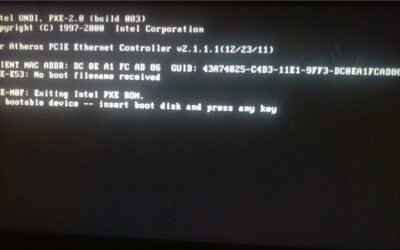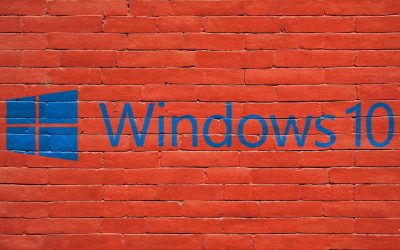Why is Google Chrome So Slow?
1. Internet connection
If your Internet connection is slow, the main reason is probably your browser. Chrome is constantly increasing its feature set and becoming more resource-intensive as the internet matures. If Chrome is slow, there are several possible reasons: your internet connection, your browser settings, and any installed add-ons. You might be using too many data or Wi-Fi connections, or you’ve installed a number of apps that use a lot of data.
If you’ve noticed that your Chrome browser is running slowly, the first place to look is your Internet connection.
- Are you using a metered connection?
- You may have a slow Internet connection if your Internet connection isn’t very strong or you’re using a slow Internet connection. You can fix this problem by deleting history and cache from your browser. Make sure you have a strong Internet connection, because deleting history and cache will only temporarily fix your problem.
- Another possible cause is your browser’s extensions. If you don’t use all of them, this can slow down the browser. To disable or remove all of your extensions, go to the Customize and control Google Chrome icon in the upper right corner of the window. Click on More tools and then Extensions. Here you’ll see a list of extensions. Click on any of them and disable or remove them.
2. Background apps
You might be asking yourself why Google Chrome is slow due to background apps. Most background apps do relatively minimal work compared to the rest of the system. However, they will consume a good portion of your system’s bandwidth unless you shut them off. Moreover, you might have multiple applications running on your system at the same time and this could cause your browser to slow down significantly. This article will discuss some of the possible causes of slow running Chrome.
One of the most common causes of slow PC performance is the presence of many background apps. This can be the case if you frequently use the same web applications. Several extensions and web apps use this feature to operate in the background. Some of these apps may include your favorite Gmail extension, link safety scanner, offline tool, scheduling tool, and so on. In order to shut down those processes, simply select them from the Chrome menu.
To prevent the Chrome app from hogging system resources, disable or stop all background apps. Then, you can turn off hardware acceleration. To do this, click on the Chrome menu and select settings. From there, you can disable or enable background apps. If you find that the Chrome speed has not improved, try turning off background apps to fix your computer’s performance. It’s better to disable the extensions than risk losing your work.
3. Updates
To improve Chrome’s speed, update it. If you want your browser to run faster, updates can solve some of the problems that are causing your browser to be slow. In order to update your browser, simply click the “Update” button on the menu bar or in the Chrome app marketplace. If you don’t want to reboot your browser, you can pause updates. If your browser still feels slow, it’s time to contact Google and request a new version of Chrome.
First, check the speed of your internet connection. If your connection is too slow, it might be due to your router or Internet connection. Try running a speed test to check your connection’s speed. Secondly, make sure you’re not using Google’s default search engine. There are other search engines available, so switch to one of them. Google’s speed test is one of the easiest ways to determine whether your connection is the problem.
Another common cause for Chrome’s slow performance is too many tabs open. The browser’s tab capacity is largely determined by the amount of RAM in your computer. If your computer has too little RAM, it will be hard to open and close tabs quickly. Another reason why Chrome is slow is that it uses many threads to enhance its user experience. This can use a lot of system resources. This can cause your browser to run slowly, but it’s worth a try.
4. Extensions
If you are having problems with your internet connection, then chances are that your computer is slowing down. Chrome may be slow because it’s overloaded with extensions. Although they add useful features, these extensions can consume system resources, making Chrome slow. To speed up your computer, you should check your extensions and disable those you rarely use. This will also make the browser faster. You can turn each extension on and off individually to see if this fixes the problem.
If you are experiencing a slow browser, the main reason is probably because there are too many extensions. Chrome’s default settings allow you to turn off extensions, but these can make the browser slower. You can temporarily disable them to see if this helps. To test whether the extensions are the culprit, go to chrome://extensions/ and find which ones are causing the slowdown. If they are the problem, you can disable them or remove them completely.
Sometimes, the software behind Chrome is responsible for the slowdown. This can be caused by site blockers or ad blockers. Additionally, software updates eat up bandwidth. Typical Windows or macOS operating system updates can be several GBs in size, and can slow down a computer’s speed. If you have a software update waiting for your PC, remove it immediately to avoid the slowdown. You can disable extensions by going to the settings menu and selecting the checkbox next to them.
5. Malware or Virus
If you suspect that malware or virus is causing your Google Chrome to be slow, you should try resetting your browser. The easiest way to do this is to clear your browsing data and cookies. Resetting your browser will not wipe out your saved passwords, bookmarks, history, or any other information you may have. But, if you’re unable to do that, you can try using a third-party cleaner tool.
In case your computer is not responding or freezing, check your network connection by clicking the network icon at the bottom right corner of your screen. If you still see the not responding message, disconnect your wireless router and connect again. Wait for at least 30 seconds for the connection to complete. Then try to open the website you’re trying to access. If you can’t get it to load, try using a different browser.
Another option for fixing the slow Google Chrome is to restore it back to its original form. This will restore Chrome to its default settings and remove any modifications you have made. The process also restores your browser to its original state so it looks and works as new. By doing this, you can fix any serious problems without reinstalling it. If you’re unsure of how to do it, here are some simple steps to follow.
6. Software Reporter Tool
When your computer starts to run slowly, it is likely a result of the Chrome Software Reporter Tool. If you are unable to stop the program, you can disable it through the Chrome settings. You can also run this tool manually to remove unwanted programs. It is important to remember that this tool can be very resource-consuming. It can also cause other problems on your computer. So, it is important to disable this tool whenever you notice a slowdown.
If the problem is not resolved after disabling the Software Reporter Tool, the next step is to find and remove the source of the problem. The Software Reporter Tool is a process that keeps on checking for updates and can use a lot of CPU. It should be removed completely if the problem persists. Here’s how to do it:
Disabling the Software Reporter Tool is simple. The tool is part of the Task Manager and is often regarded as a nuisance because it can burden your information system. Many people are wondering how to disable it. But this tool has a good purpose: it protects your computer from malware by reporting suspicious applications and software. However, the problem is that it can make Chrome run slow. It’s therefore crucial to disable it to stop Chrome from becoming too slow.
If you still have issues with Google Chrome, get in touch with our PC repair experts.



